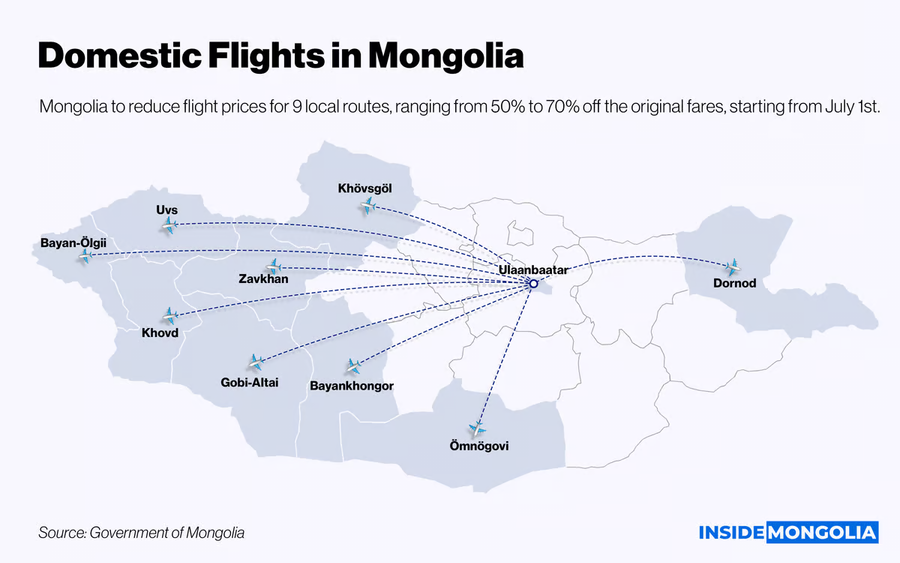Much cheaper domestic flights

May 29, 2023
May 29, 2023

MIAT, Mongolia’s state-owned flagship airline, has said it will restart regular domestic flights to destinations such as Choibalsan, Dalanzadgad, Murun, and Khovd from July. The government hopes the move will slash ticket prices to those places by up to 70%, boosting tourism and economic activity.
Hunnu Air and Aero Mongolia are the only two of the country’s 11 airlines that offer regular domestic flights, but the prices are prohibitive. A flight from Ulaanbaatar to Ulgii, the westernmost city home to ethnic Kazakhs, costs ₮1.6 million ($460), comparable to flights to Tokyo and Seoul.
Mongolia’s rural regions have long suffered from a vicious circle of poor connectivity and low economic activity. Aside from flights, they are only reachable by the country’s notorious road network which often breaks down and takes up to 36 hours.
As part of its efforts to boost tourism, the Mongolian government has implemented several initiatives to reform its air transport industry, including liberalization that brought competition to some high-demand destinations and direct flights to the US and the UK.
- After the pandemic, the airline industry has seen a resurgence. Passenger numbers in the first quarter rose 240% year on year to 318,400. MIAT’s domestic flights will surely boost domestic tourism.
- Because ticket prices depend largely on fuel costs, the government has tried to bring down fuel costs through diplomacy and subsidies.
- To help MIAT start domestic flights, the government is giving it one-off financial support to cover initial costs and help it price flights competitively.
It is good to see the long-overdue air transport reforms coming to fruition. Transport has been a key factor in regional inequality domestically and low tourism internationally. But building a sustainable, economically sound industry takes more than government subsidies. It needs to go hand-in-hand with regional development so that people actually take the flights.
Comment